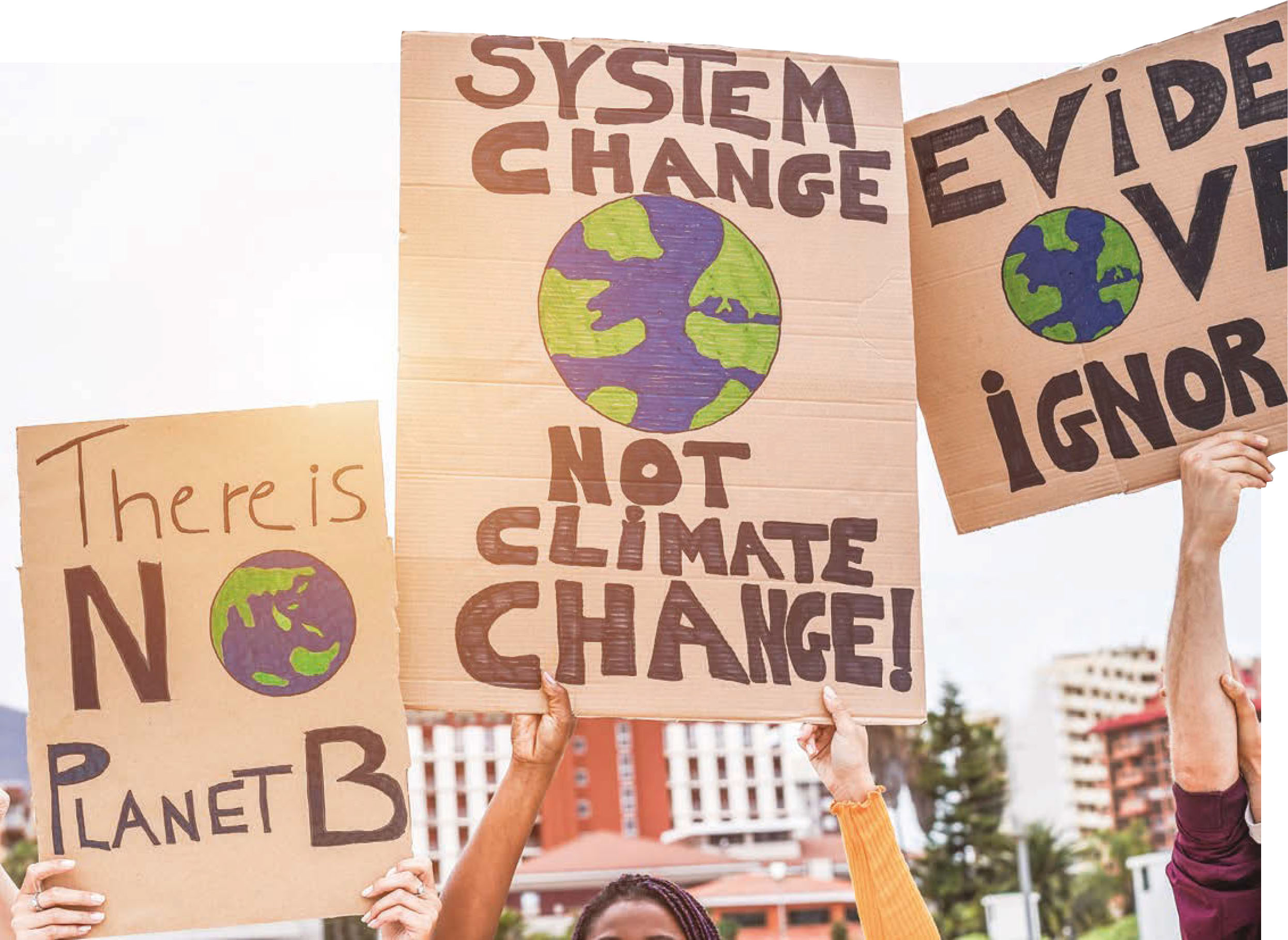It’s hard to get your mind into a workout when there are people on the streets protesting against climate and ecological collapse. The facts are simple: in 1859 a clever chap named John Tyndall proved that so-called ‘greenhouse gases’ such as carbon dioxide – produced when making a pair of running shoes, powering a car, flying a plane or gas-heating your home – and especially methane, which is burped and farted like crazy from cows, trap heat. Just like in a greenhouse, too much heating is catastrophic on a planetary scale. We’ve already heated the planet by more than one degree. We are still increasing global emissions and we need to reduce them by 45 per cent by 2030 to avoid disaster. World leaders once again failed to make the necessary commitments to begin reductions in New York this September – which puts that missed deadlift PB into perspective.

Photography Getty Images | 1. Current Opinion in Psychology 2. Mayo Clinic Proceedings
There are no easy answers to engaging with and helping improve the crisis. Government inaction means sticking your head in the sand and hoping it will resolve itself while you are in the weights room won’t yield results. Research into global climate change and mental health, published this summer,1 showed that people who have managed to engage with climate change as an end-game threat may suffer from psychological distress. Extinction Rebellion, who have caused mass disruption in order to principally spread the truth about rampant climate change, ask that people embrace this sense of grief before beginning to act. It’s all rather doom and gloom, but as the heat rises there are a number of ways to keep a cool head while still making a difference.